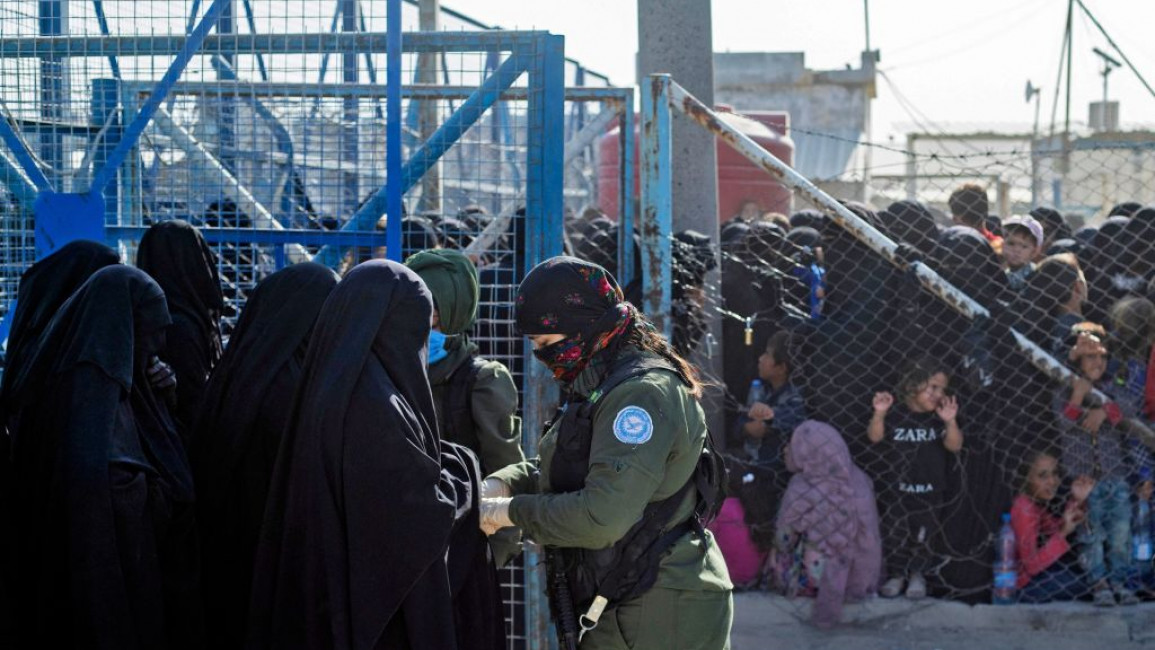Many children 'successfully reintegrating' after repatriation Syria IS camps, HRW says
Many children brought from Islamic State (IS) group detention camps in northeast Syria to their home states are "successfully reintegrating", according to Human Rights Watch on Monday.
The watchdog released a 63-page report that looks at around 100 children repatriated or returned to countries including the UK, France, the Netherlands and Kazakhstan between 2019 and 2022.
It comes after World Children's Day was celebrated on Sunday.
Detention camps for those suspected of belonging to the IS and their family members in northeast Syria, where a Kurdish-led administration is in power, are notorious for poor conditions.
The authorities, who say they do not have the resources to continue holding foreign detainees, have urged states to take their citizens back.
"Human Rights Watch found that despite years of detention in life-threatening conditions with insufficient water, fresh food, and health care, and little-to-no access to education", many of the 100 children it followed "appear to be adjusting well and performing well in school", the rights group said.
HRW children's rights advocacy director Jo Becker said: "Children rescued from the horrors of the camps are doing well in school, making friends, and building new lives in their home countries.
"Despite enduring unimaginable suffering, many are reintegrating remarkably well."
HRW said in a press release that governments should "remove any barriers to effective reintegration" and "ensure that their return policies are not causing unnecessary harm to their child nationals".
It said Russia and Central Asian countries have repatriated around 1,000 children in total, almost double the overall figure for all Western states.
The rights group surveyed relatives, social workers, teachers and others and conducted interviews, including with relatives, lawyers and mental health workers.
Respondents to a survey were asked how the child is adjusting, and 89 percent said they were doing "very well" or "quite well".
Dozens of Australians, including more than 20 women and 40 children - some the wives and children of Islamic State group fighters - are held within camps such as Al-Hol and Roj in Syria which are currently run by US-backed Kurdish forces. https://t.co/gZ7pUcl21k
— The New Arab (@The_NewArab) October 3, 2022
The child was performing "very well" or "quite well" in school, 73 percent of respondents reported.
"It is possible, fully possible, for reintegration and recovery of children," said one grandfather to several children repatriated to Sweden in 2019.
"My grandchildren are evidence of this. They have recovered in the most incredible way. All children should have the opportunity to get a new chance in life."
HRW said around 56,000 people, overwhelmingly women and children, are held arbitrarily in the Al-Hol and Roj camps in northeast Syria, which contain wives, women relatives and children of men suspected of belonging to IS.
Over 18,000 come from Syria, while around 28,000 are from next-door Iraq and over 10,000 from around 60 other nations, according to HRW.
Over six in 10 are children, the watchdog said.



